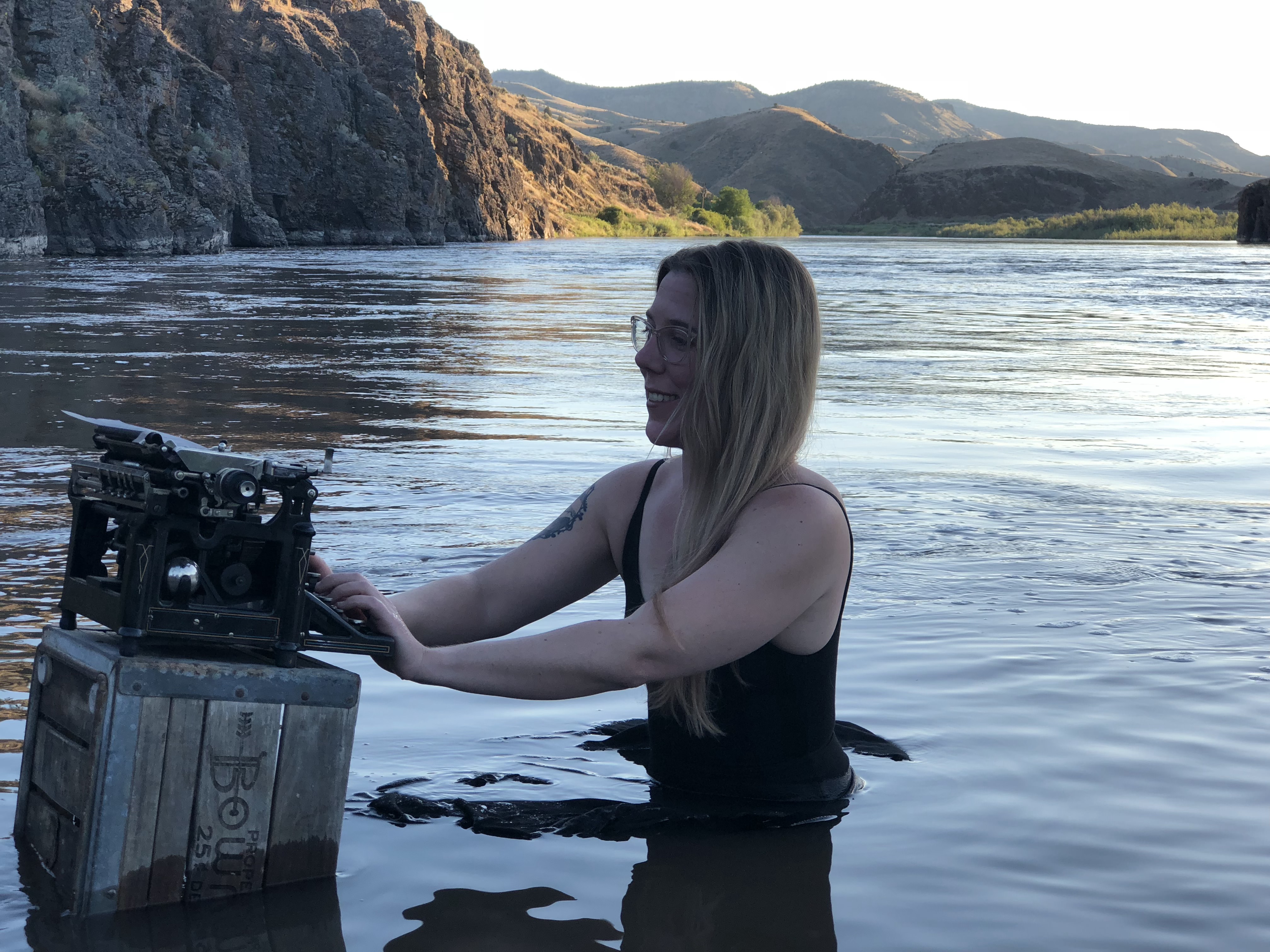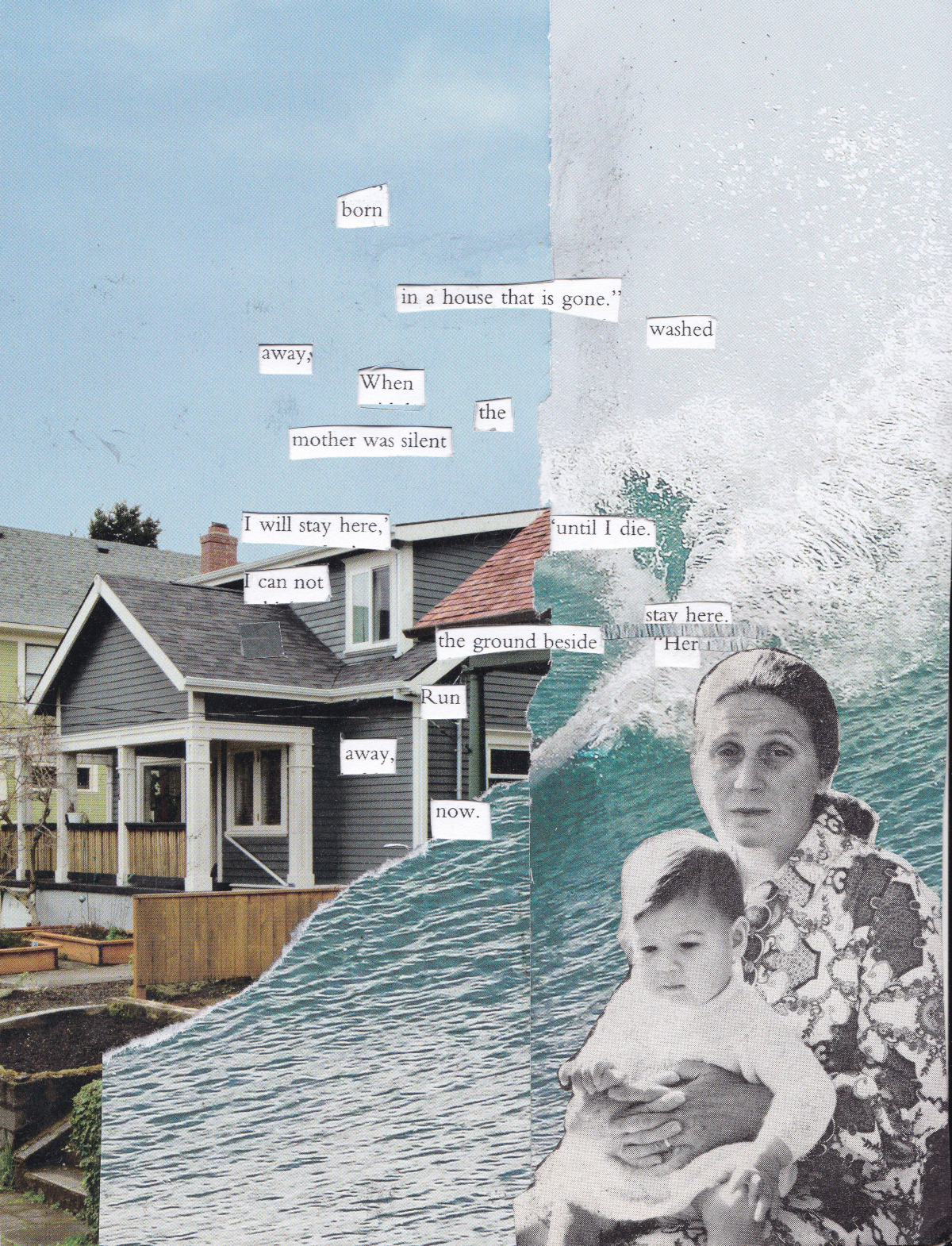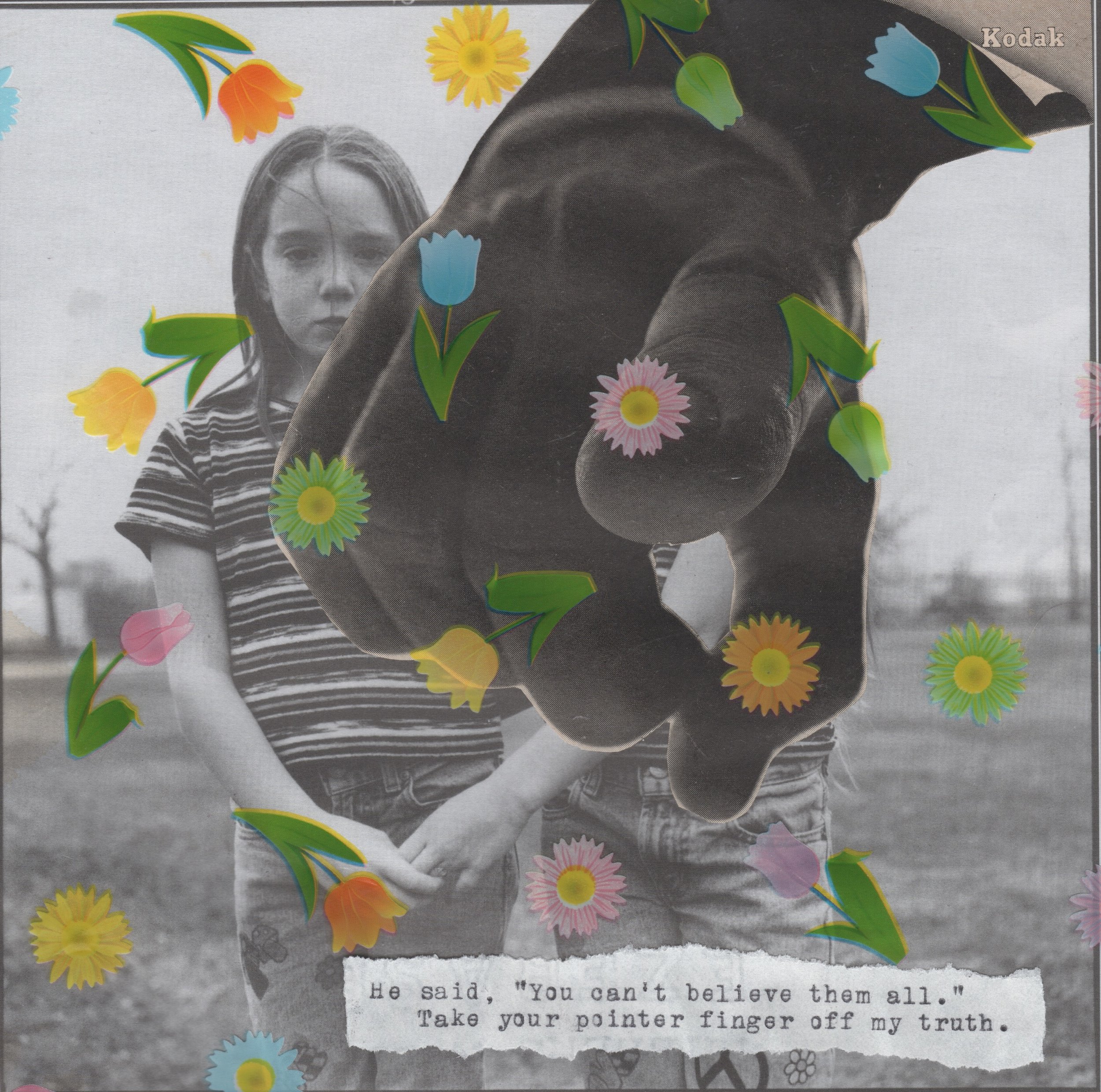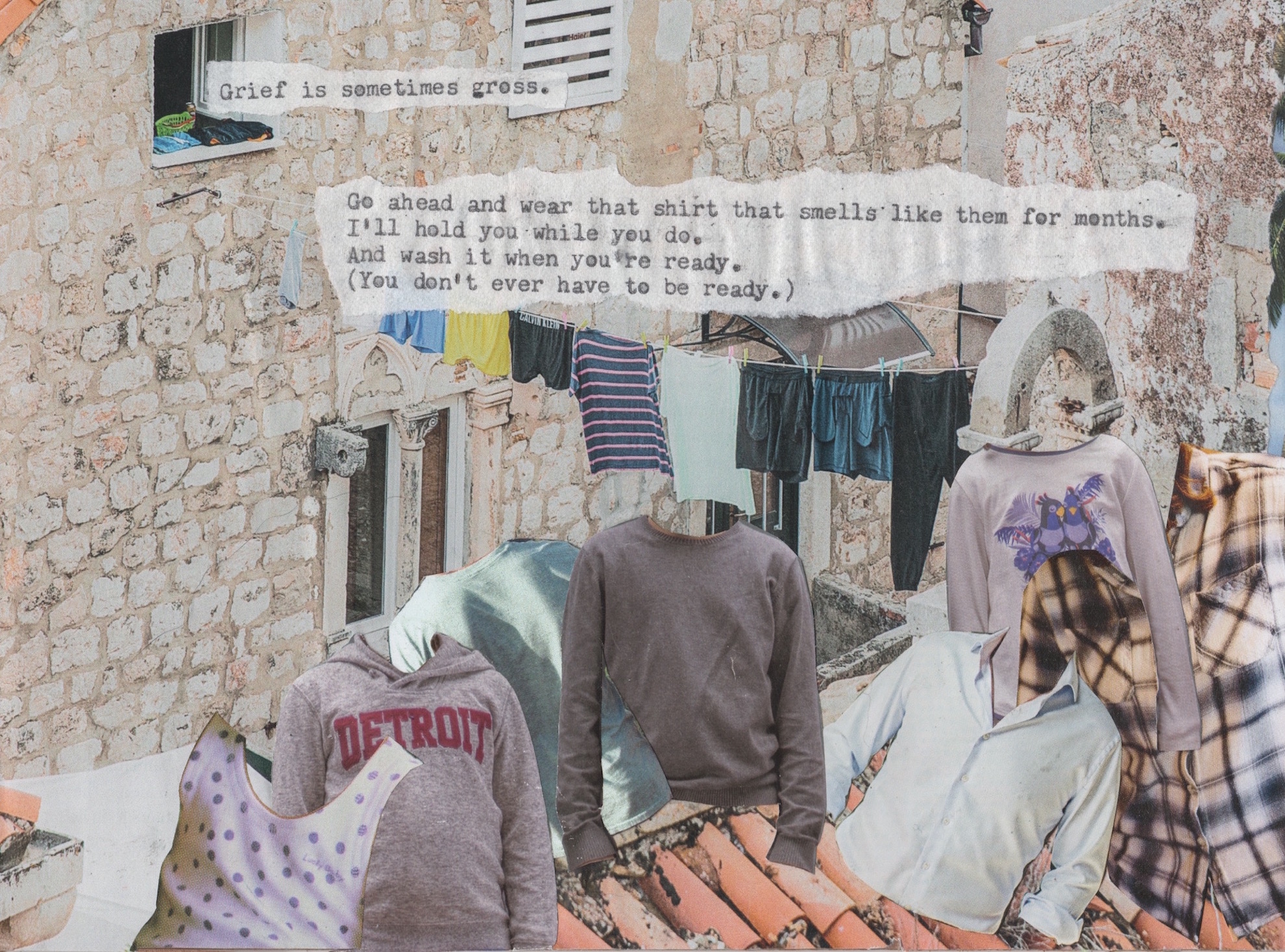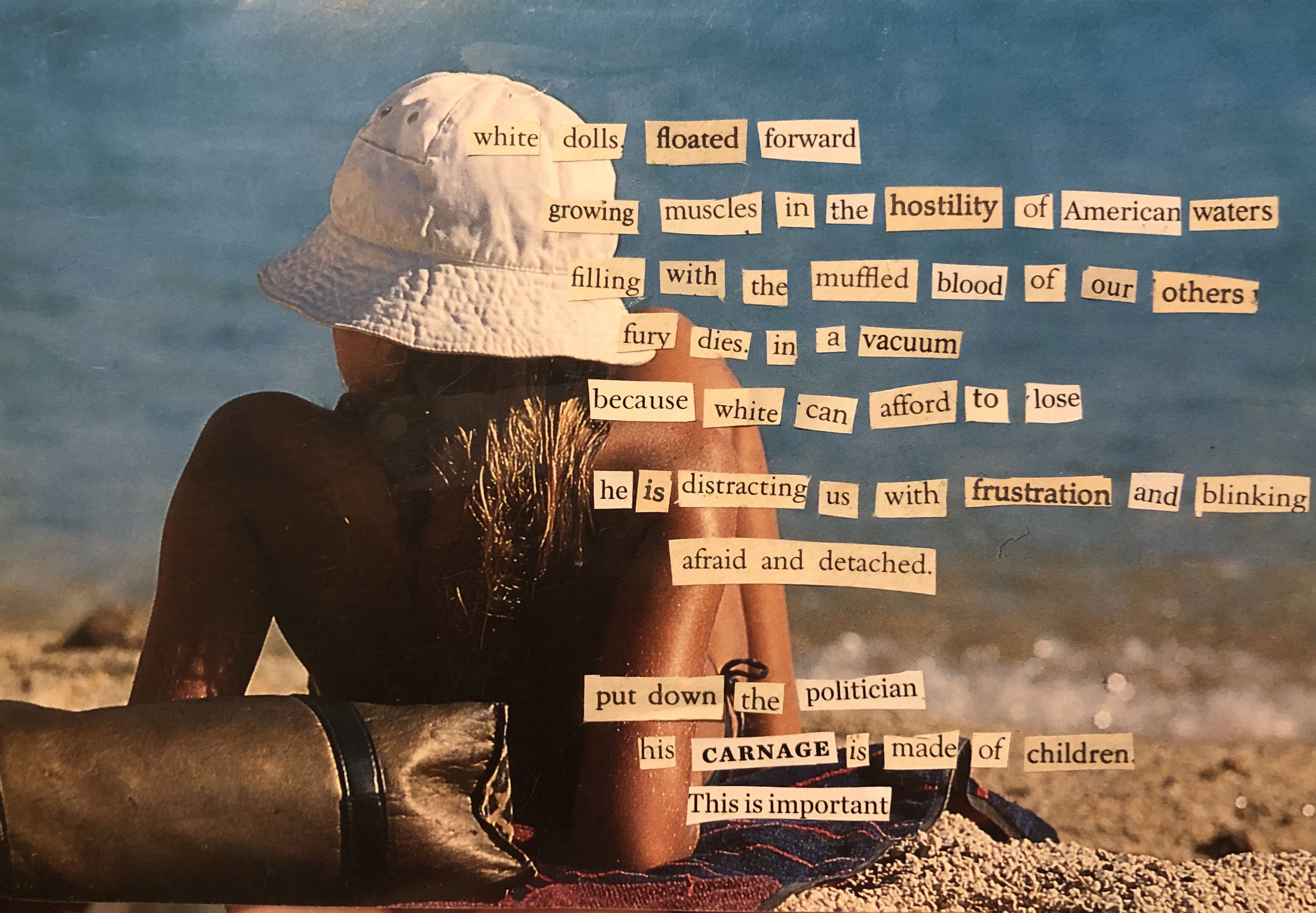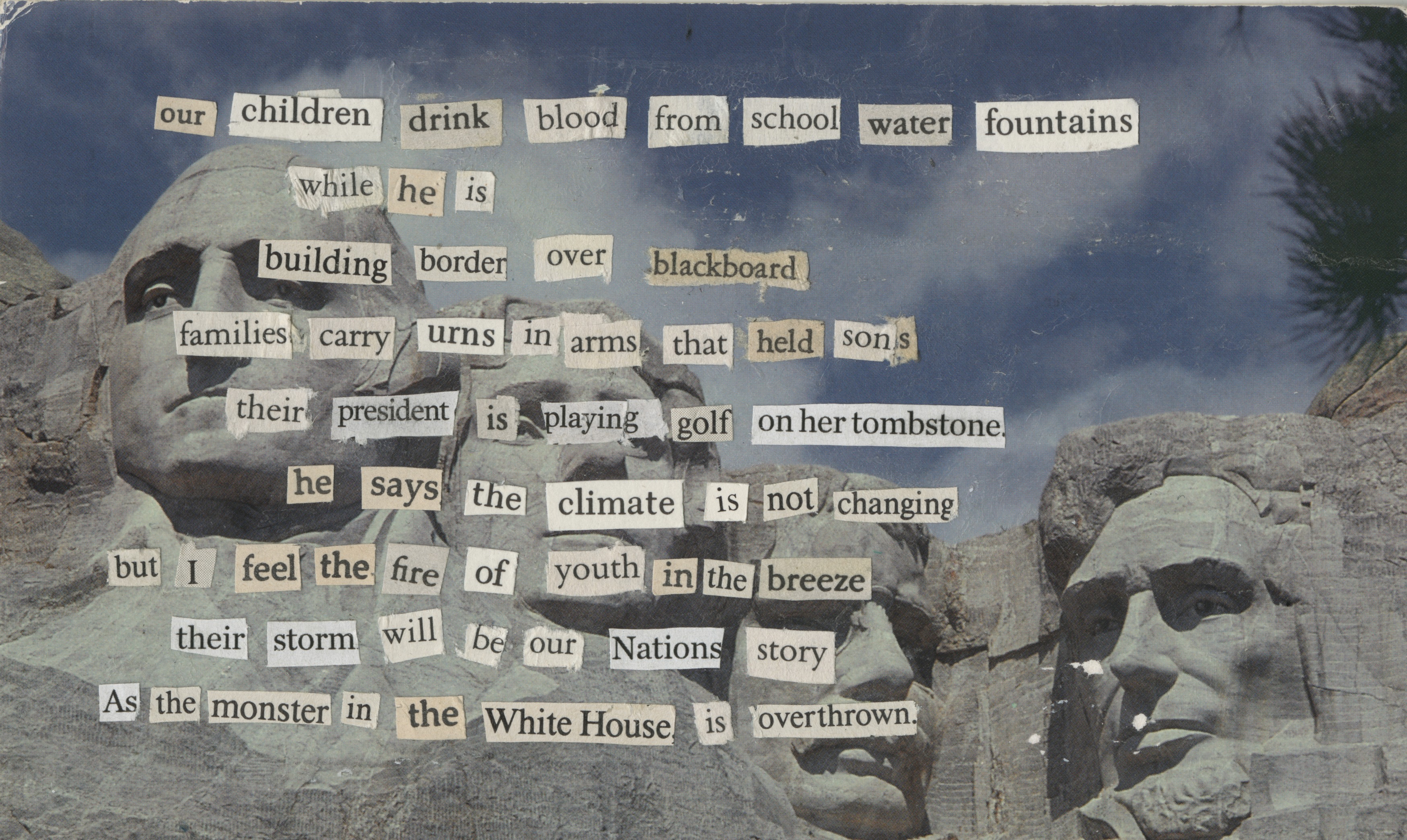Tell us a little bit about your history with the IPRC.
I’m from Chicago, this is my sixth school year in Portland. I measure everything in school years because by day I’m a Special-Ed High school teacher. I got involved with the IPRC three years ago when I did their certificate program in prose. From volunteering on Thursday nights I became a person allowed to use the bindfast machine, so now I’m the bookbinding steward over here.
What draws you to the mediums you work in?
It’s funny, I’m drawn to mediums because they’re the opposite of things I’m afraid of. Like, for writing, I’m just terrified of fiction. Which doesn’t even make sense, because I remember when my chapbook Post Mother America came out—I was seventeen when my mom died and that’s what it’s about—but all of a sudden people wanted to buy it and I had never considered the fact that sure, I’m workshopping and sharing stories with my inner circle but I never considered, like… shit, strangers are gonna read this! My aunt Donna is gonna read this! And in the book I’m smoking cigarettes in my dad’s minivan and I’m a teenager and I liberally swear and you know there’s like… it’s sex and drugs and rock and roll, so it’s funny that I’m scared of fiction, when if you google me, my whole life story is on the internet. But I like writing because I’m just sort of attracted to the idea that everybody has a story, and there’s so many simple things that connect all human beings, and I like using writing to find those connections. It’s healing too, but it’s not just an emotional dump on my part. Creative nonfiction and memoir is cool because we’re not all that different.
What do you do when you have a writing block?
Cut stuff up. Not like in a violent way. I invested in some exacto knives and I’ll just cut up words and make weird stuff and sometimes it turns out awesome, and sometimes I just throw them away. Right now I have a little bowl full of words on my desk that didn’t make it into poems and so literally I’ll get stuck and just dump some of the words out and see what I make of them. So my friend and I call them word collages. And I read a lot too, I’m trying to do more of that. I feel inspired when I read something awesome, that just gets the wheels turning. Good reading inspires good writing.
Where do you get materials for your collages?
I have a collection of Life magazines from the 40s and the 50s and the 60s. I love the aesthetic of that time period and print media. Though sometimes I get so distracted by how misogynistic it is, but then sometimes that sparks another project. I like erasure. Taking something that I don’t love, actually taking that physical image or that actual page of text and then turning it into something that is maybe a protest of what it was in itself. I have this tiny collection of male self help books about sexuality and being a man that are my favorite thing right now to erase and cut words out of and make new poems from. So I feel kind of the same attraction to print media and images from old magazines.
What inspires your art?
Lots of the stuff I’ve been making lately is a reaction to what’s going on in the world around us. But also I really like collaborating, and conversations with other people. My friend Kara and I did a collaborative project where we would send each other text every week and then collage each other’s texts. I like new ways of thinking about things, so when I get to do something like that with someone else, it’s just a new avenue into like, what’s going to come out of me visually with someone else’s words? Collaborating inspires me. And this community around here inspires me. Especially in this space, everyone’s making awesome stuff. And then they’ll like leave drafts in the scratch paper bin and I’ll be like oh what’s this? [laughs]
What are some projects you’re working on right now?
I’m in a bit of a transition phase. My friend and I strung together a surrealist narrative from 30 of the pieces that we had collaborated on, so we’re in discussion of whether we want to self publish and put that into the world. And I am in a constant state of trying to turn that little collection of essays, Post Mother America, into a full length work. That’s maybe why I love small text and visual projects because they’re really good distractions from the big projects. But I don’t know, I’m always making new stuff to turn into cards and journals for this Griefing Card Company.
What’s the Griefing Card Company?
I had an artist residency last spring at the Sou’wester in Washington, and out of that came this little company called the Griefing Card company. I just went into the residency with an open mind and I wound up making a lot of cards and journals that are collage materials with microtext and the idea of things I would have much preferred to receive on a card when my mom died, or other people passed away, rather than like, “Everything is fine! They’re at rest!”. So I feel like that’s what I do. I’m always making new stuff to turn into cards and journals for this Griefing Card Company which is not intended to be a business in the sense of making money, I just want to get things into people’s hands when they are having a hard time. And maybe need some words of laughter or encouragement or you know “hey, this sucks”. There isn’t a lot of that in mainstream media in terms of the way our culture is, and I don’t know, I don’t like it, so I’m trying to change it just a little bit.
You have a lot of political work. What do you think art can add to political conversation?
I think it’s twofold—it’s really helpful when you’re just really mad or really disappointed or sad or scared to have those tools to write or create about it. And then I think the flipside of that is when that art is out there in the world, it creates a sense of camaraderie with other people who are feeling the same way. And it can be like very political in nature while also being accessible, because it’s a softer way into that conversation. I mean some of it is very bold and very obviously political but some of it is just thought provoking and safe, in the way that you can engage with a piece of art how you want to engage with it. So you might take the whole message from it, but you might take your own, and it’s not scary. It doesn’t have to beat you over the head. But it can, and that can be very powerful as well. In a way it’s like a gateway drug to deeper political conversations.
You also are a founder of Arq Press, can you tell me a little about that?
For the certificate program at the IPRC we had a final personal project to create our own book, from writing, to publication software, to printing it, but we also had to do a collective anthology, and we had so much fun with that that we decided to start a small press. So we stayed together and founded Arq Press, and the first one we did was during the really amazing wonderful election year where everyone was super happy [laughs], so we were like “Let’s make our thing political!” but we were all like no that’s too much, we’re all too depressed, let’s not focus on it. And it turned out four of the seven of us randomly had work about sheep so we decided to call our first anthology “Flock” and it was semi-political but then just semi-like, sheep. So now every year these collective animal nouns are the themes of this journal we put out. And last June we put out a 75, 80 page journal called Routes which is the collective noun for a group of wolves on the move, and it was awesome. We had contributors from, I don’t know, like some guy in Madison, Wisconsin and a couple poets from around here that have really good stuff, people that we don’t know. So this year’s, we need to get it together for this year… I think announcement for this year’s name and that call for submission should be coming soon and we’ll have something else out in the spring.
If you could collaborate on a project with an artist living or dead, who would you pick?
Oh man, so many good choices… Louise Bourgeois. That’s who I’d want to collaborate with. That’s my gut reaction to your question and I’m sticking to it. I like the idea of installation art as 3-dimensional collage. And feminism. I like feminism.
Ann Petroliunas is a nonfiction writer and collage artist from Chicago who has lived in Portland for over 6 years. She is a graduate from the IPRC 2017 Prose Certificate Program, the IPRC bookbinding steward, and a Special-Ed High school teacher during the day. She is also the Managing Editor and one of the founders of the local micropress Arq Press. annpetroliunas.com Instagram: @annpetro
All images are used by permission of the artist.
Interview by Ella Stewart.

